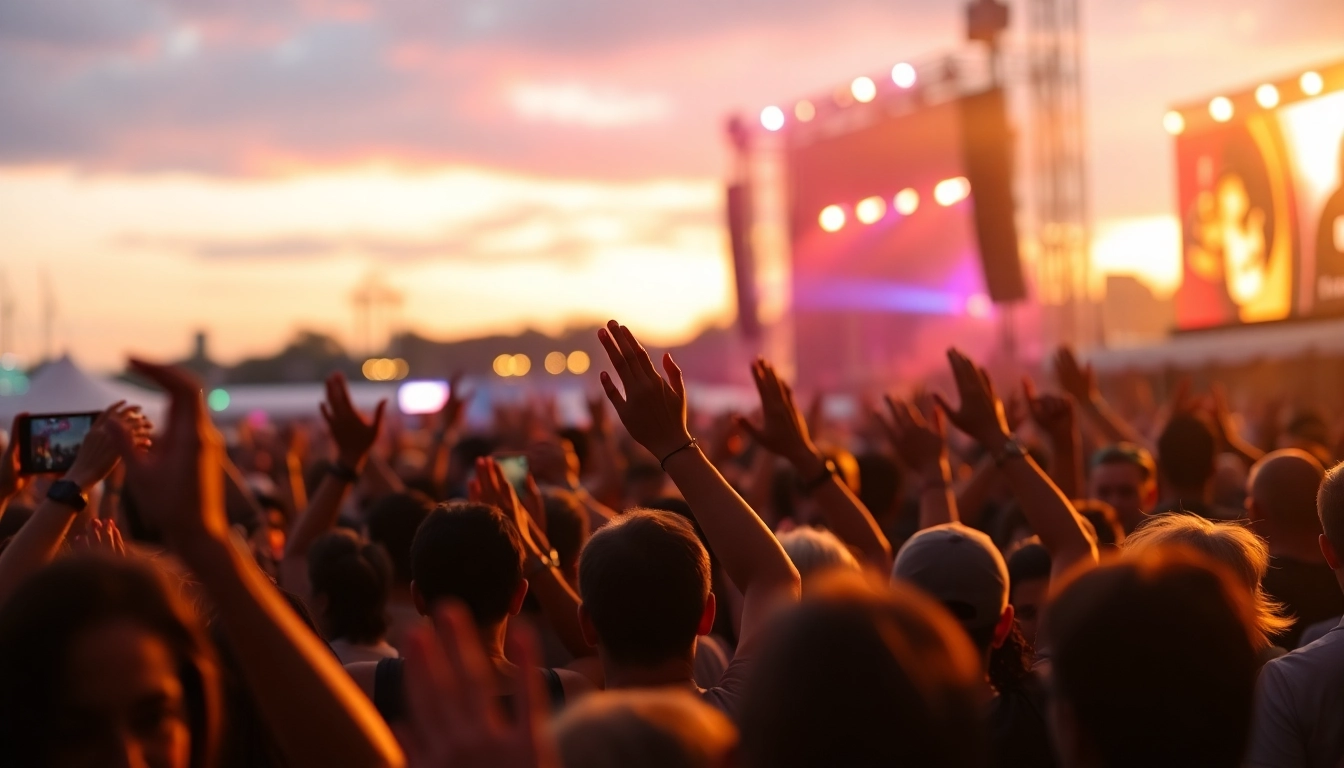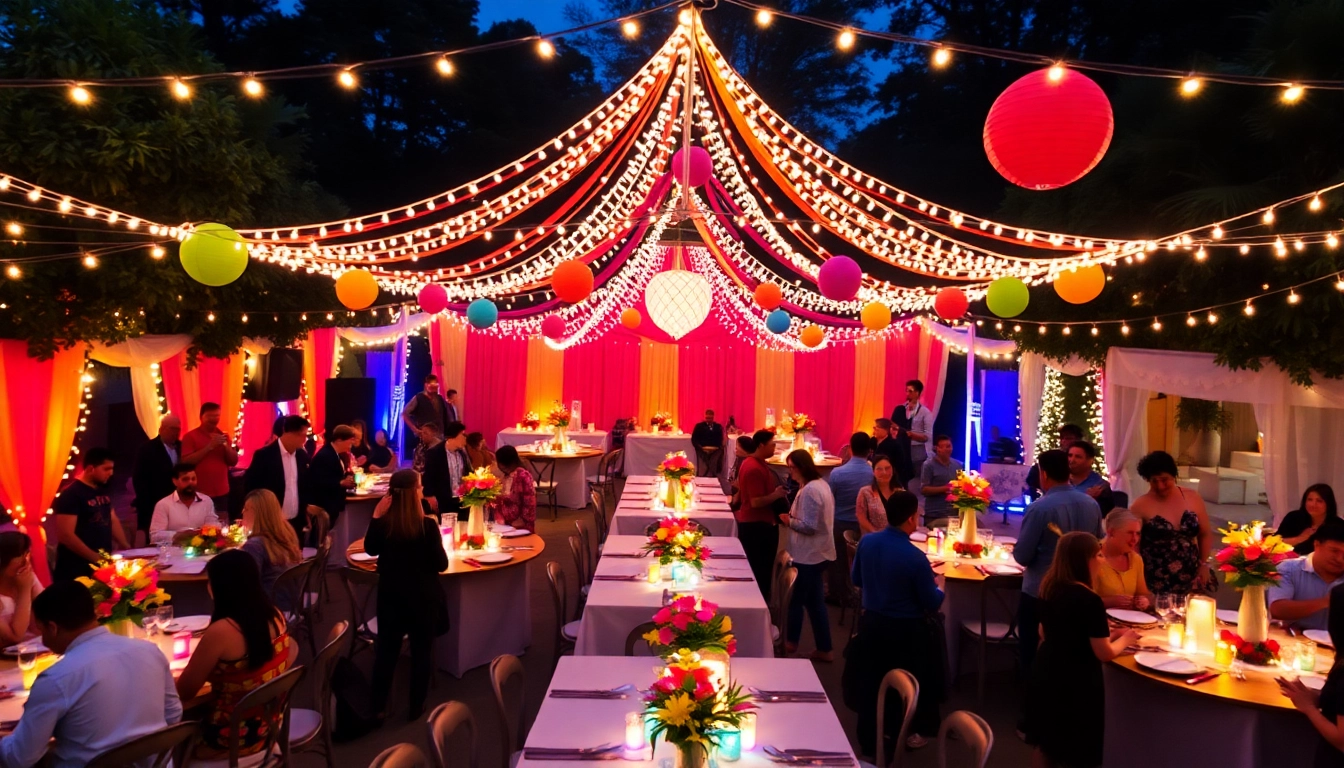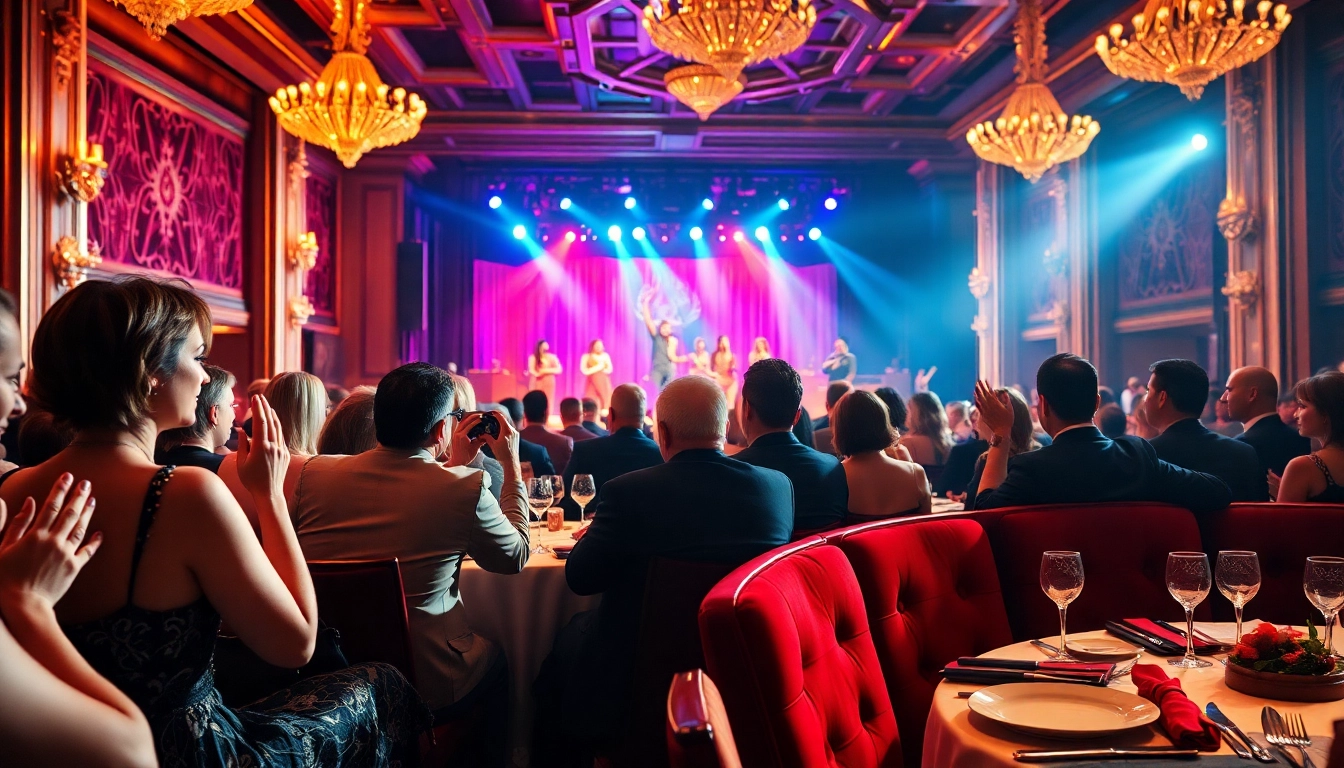Understanding the Passion of Live Music Fans
Live music fans are at the heart of the music industry, bringing with them an unmatched energy and fervor that transforms ordinary concerts into unforgettable experiences. Their passion is accompanied by a variety of motivations and communal ties that often lead to lifelong connections through shared musical moments. Understanding what drives these fans is crucial for artists, promoters, and industry stakeholders alike. From the rush of seeing their favorite band perform live to the camaraderie built within diverse communities, the allure of live music is multi-faceted and powerful. To glean a deeper appreciation for this sector, examining their motivations, community roles, and personal connections to music is essential. If you’re a Live Music Fan, or involved in the industry, this article delves into several aspects that shape the experiences and challenges faced in this vibrant culture.
What Drives Live Music Fans to Attend Concerts?
The motivations behind attending concerts vary greatly from fan to fan. Some key driving factors include:
- The Love of Music: For many, a profound love for a genre, artist, or particular song incites the desire to experience music live. The emotional connection built through listening is often amplified by the atmosphere of a concert.
- Social Interaction: Concerts are also social events; fans seek connection not only with artists but with others who share their enthusiasm. The communal experience—dancing, singing, and celebrating together—reinforces relationships.
- Festival Culture: The rise of music festivals has transformed how fans access live music. Festivals offer a culmination of experiences, showcasing multiple artists across different stages, making it a unique opportunity for musical discovery.
- Unique Experiences: Every concert has its own atmosphere and energy, often dictated by the venue, the crowd, and the performance itself. Fans are drawn to these unique experiences that differ from standard audio consumption.
The Role of Community in Live Music Culture
Live music culture thrives on community. Fans often bond over shared interests, forming friendships that can last a lifetime. The community aspect can often be observed in various ways:
- Fan Clubs and Social Media: Online platforms serve as vital spaces where fans connect, share experiences, and discuss artists. Dedicated fan clubs can create strong networks that extend beyond physical concerts.
- Local Scenes: Many fans are dedicated to local music scenes, supporting local artists and fostering a sense of belonging by contributing to community events and building relationships with other local music lovers.
- Collective Experience: Attending concerts brings fans together for a shared experience, making them feel part of something larger. This sense of belonging can enhance the enjoyment of music.
How Live Music Shapes Personal Identity and Experiences
Live music often plays a transformative role in shaping personal identity and creating lasting memories. Here are ways this occurs:
- Expression of Self: For many fans, music is an essential form of self-expression. The genres they resonate with often reflect their values, ideas, and emotions, influencing personal identity.
- Memorable Life Events: Concerts often coincide with significant life events—birthdays, anniversaries, or personal milestones. These associations help solidify music’s deep-rooted impact on life experiences.
- Influence on Mental Health: Many fans find solace in live music; experiencing shared emotions during a concert can provide therapeutic benefits, helping individuals cope with stress, anxiety, or depression through connection and community.
The Evolution of Concert Experiences for Live Music Fans
The landscape of live music has undergone substantial transformations over the years. These shifts have shaped how fans experience concerts and engage with artists. To fully appreciate the evolution, it’s important to analyze how different aspects have evolved, from traditional venues to the impact of technology.
From Traditional Venues to Innovative Formats
Concert experiences have transcended traditional venues like stadiums and theaters to incorporate innovative formats that enhance engagement:
- Pop-Up Shows: Artists and promoters have embraced unique, unexpected venues like warehouses, rooftops, and even private homes, offering fans exclusive experiences and closer interactions with artists.
- Virtual Concerts: Online performances, especially prevalent during the pandemic, have created a new frontier in accessing live music. Fans can now partake in world-class concerts from the comfort of their homes.
- Hybrid Events: Combining in-person and virtual elements allows for broader participation. Such formats cater to those who may not have access to traditional venues while offering artists a wider reach.
The Impact of Technology on Live Performances
Technology continues to play an integral role in shaping the live music experience:
- Enhanced Production Techniques: Advancements in sound and lighting technology have exponentially improved concert experiences. High-quality production enhances not just the auditory experience but the visual spectacle as well.
- Mobile Apps: Event-specific apps are now commonplace, providing fans with schedules, maps, and interactive features to enhance their experience. This digital integration fosters better engagement and information access.
- Live Streaming: This technology bridges geographical gaps, allowing remote fans to engage in live performances, fostering inclusivity and expanding reach for artists.
Key Trends Shaping the Future of Live Music Events
The future of live music is being shaped by evolving fan preferences and technological advancements. Some notable trends include:
- Sustainability Initiatives: Fans increasingly seek out eco-friendly events, pushing organizers to adopt sustainable practices such as reducing waste, utilizing renewable energy, and promoting carbon offsets.
- Diversity and Inclusion: The push for diversity in line-ups and representation is gaining momentum, creating space for underrepresented artists and ensuring fans from all backgrounds feel included.
- Experiential Marketing: An emphasis on immersive experiences beyond just the concerts, including art installations and interactive elements, enhances engagement and creates memorable connections.
Engagement Strategies for Connecting with Live Music Fans
To successfully connect with live music fans, artists and event organizers must implement effective engagement strategies. Doing so not only fosters loyalty but also enhances the overall fan experience.
Leveraging Social Media to Enhance Fan Experience
Social media platforms are powerful tools for connecting with fans. Here are key strategies to leverage social media effectively:
- Consistent Updates: Regularly share updates on tours, new releases, and behind-the-scenes content to keep fans engaged and informed. Engaging, authentic content is essential in maintaining interest.
- Fan Interaction: Encourage direct interaction through Q&A sessions, contests, and shout-outs to create a sense of community. Acknowledging fans personally can strengthen bonds.
- User-Generated Content: Encourage fans to share their concert experiences on social media by creating unique hashtags. This not only promotes engagement but also expands artist visibility.
Creating Memorable Moments: Beyond the Music
To ensure a memorable experience, artists and promoters should consider incorporating special moments, such as:
- Meet-and-Greets: Personal interactions with artists create lasting impressions for fans, often going beyond the music itself.
- Themed Events: Hosting themed concerts or special commemorative shows can deepen engagement and create unique experiences.
- Enhanced Merchandise: Offering exclusive or limited-edition merchandise during events adds to the experience and provides fans with tangible memories.
Collecting Feedback and Adapting to Fan Preferences
Continuous improvement is key to successful engagement. Collecting feedback allows artists and promoters to tailor experiences to fan preferences:
- Post-Event Surveys: Gather fan feedback through surveys to understand their experiences better. Use insights to enhance future events and address any challenges.
- Social Listening: Monitor social media for fan sentiments and engagement patterns. This insight can guide future marketing strategies and content creation.
- Focus Groups: Conduct focus groups with dedicated fans to gain deeper insight into preferences and desires. This tangible feedback can be invaluable in crafting experiences.
Challenges Faced by Live Music Fans Today
Despite the joy of live music experiences, fans encounter several challenges that can affect their enjoyment and participation. Addressing these challenges is crucial for maintaining a healthy live music culture.
Navigating Ticketing Issues and Scalping
One of the biggest hurdles fans face is securing tickets at reasonable prices. Scalping has become rampant, exacerbating frustrations:
- Transparency Measures: Industry stakeholders are beginning to adopt more transparent ticketing practices, such as pricing transparency and offering direct-to-fan sales to counteract scalpers.
- Limitations on Resales: Limiting ticket resales to authorized platforms can help ensure that tickets remain affordable and accessible to those who genuinely want to attend.
- Advocacy for Policy Changes: Many fans are now advocating for legislation to regulate ticketing practices and demand fairer access and pricing.
Accessibility Concerns in Live Music Venues
Accessibility remains a significant challenge for many fans:
- ADA Compliance: Venues should ensure compliance with the Americans with Disabilities Act (ADA) and that facilities are accessible for all fans, including those with mobility issues.
- Inclusive Services: Providing services such as sign language interpreters and seating accommodations enhances the concert experience for disabled fans.
- Awareness Programs: Education and awareness for venue staff can lead to better handling of accessibility needs and improved fan experiences.
Dealing with Post-Pandemic Changes in Concert Dynamics
The COVID-19 pandemic has altered the dynamics of live music events. Fans must adapt to new protocols, impacting their concert-going experiences:
- Health and Safety Measures: Adapting to heart protocols such as capacity limits or mask mandates is essential to ensure safety while enjoying live music.
- Shifted Expectations: Fans may have changes in expectations around engagement, with a heightened appreciation for social distancing norms and appreciation for live events.
- Return to Pre-Pandemic Norms: As venues continue to reopen, industry stakeholders must balance maintaining safety with the traditional concert experience.
The Future of Live Music and Its Impact on Fans
The landscape of live music is continuously evolving, and the future will hold significant implications for fans. As industry standards shift, the role of fans in shaping these trends becomes more prominent.
How Live Music Fans Are Shaping Industry Standards
Engaged fans play a pivotal role in shaping industry practices. Their collective voice has begun to influence several key areas:
- Artist Transparency: Fans demand transparency regarding ticket prices, artist earnings, and business practices—pushing for honesty in the relationship between artists and audiences.
- Ethical Practices: Fans are increasingly vocal about issues surrounding climate change, diversity, and ethical treatment of artists, advocating for a more responsible music industry.
- Fan-Centric Policies: Industry players are beginning to recognize the importance of fan engagement and are adapting their policies to better serve and support active communities.
Emerging Genres and Their Growing Fanbases
New musical genres are constantly emerging, and with this comes new fanbases:
- Continued Genre Fusion: Fusions of genres cater to diverse musical preferences, attracting wider audiences and creating hybrid fanbases of varying backgrounds.
- Growth of Niche Genres: Specialized genres, often with dedicated fanbases such as lo-fi, country rap, or K-pop, are gaining traction, showcasing the diversity in musical tastes.
- Globalization of Music: Technology allows fans worldwide to explore genres from different cultures, leading to a broader appreciation and engagement with global music.
The Role of Festivals in Fostering Fan Engagement
Music festivals continue to be pivotal in the live music ecosystem, providing extensive opportunities for fan engagement:
- Comprehensive Experiences: Festivals often provide a curated experience through food, art, and activities, giving fans a multidimensional tasting of culture beyond music.
- Essence of Discovery: Festivals allow fans to discover new artists and genres, fostering a culture of exploration and shared experiences.
- Fan Interaction Spaces: Dedicated meet-and-greet areas and fan zones help bridge the gap between fans and artists, making live music an immersive communal experience.
As the world of live music continues to evolve, understanding the passions and challenges faced by live music fans remains crucial. By embracing innovation, advocating for equality, and fostering community, artists and organizers can work towards creating a live music landscape that remains vibrant, inclusive, and reflective of its dedicated fans.



